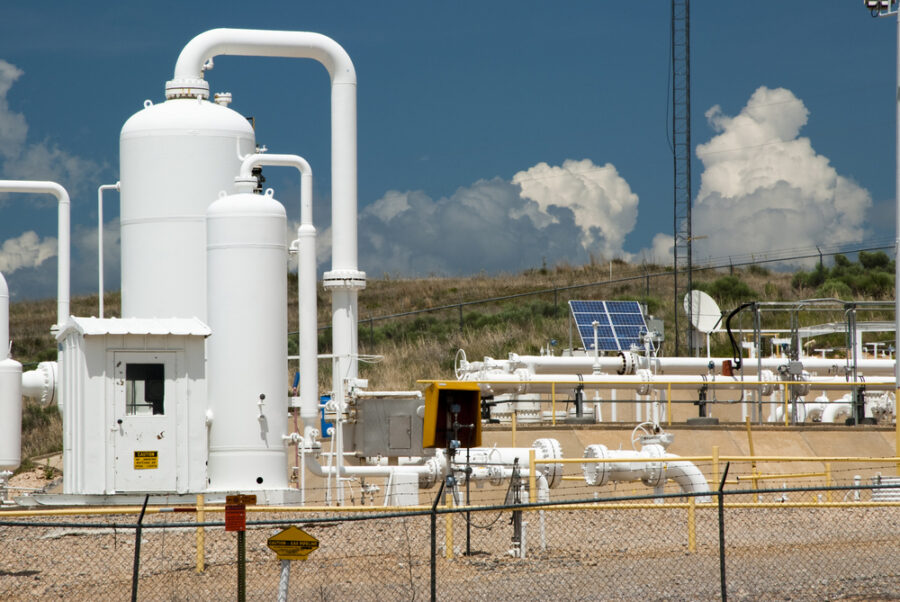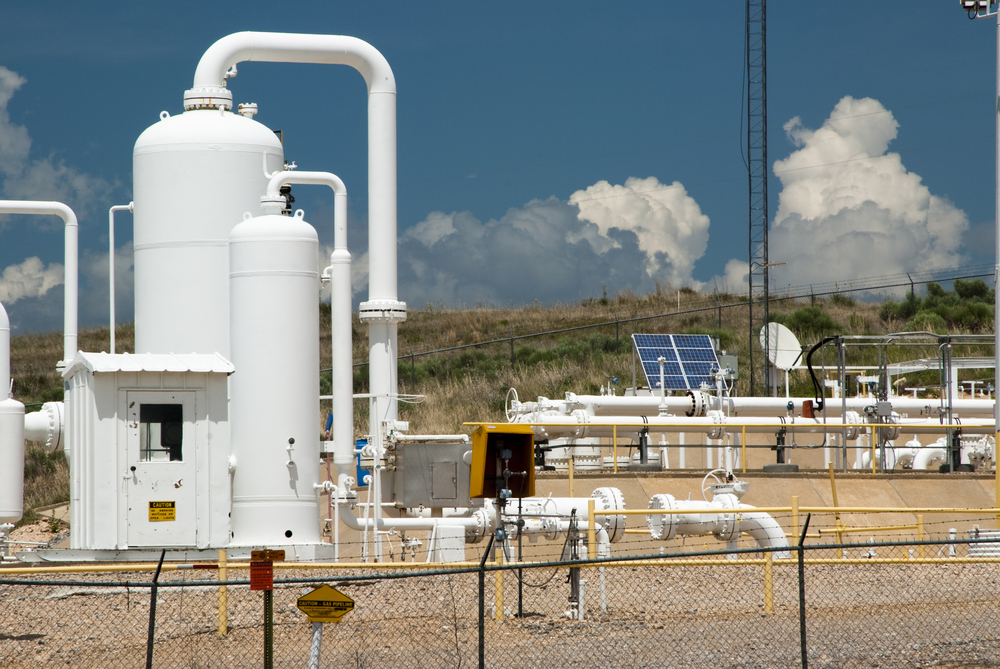
How Natural Gas Pipeline Compressor Station Construction Protects You
Last month we discussed why compressor stations are so important. This month we will explore some of the potential hazards of, and safety requirements for, natural gas pipeline compressor stations.
Natural gas pipeline compressor stations are a critical part of the natural gas delivery process. These stations are necessary in order to transfer natural gas hundreds of miles from where it is processed to where it will be used. But in order to make sure the gas flows freely, it needs to be compressed periodically along the pipeline, to keep it moving. This is why above-ground compressor stations are necessary about every 50 to 100 miles along the natural gas transmission pipeline.

People often assume that because a natural gas pipeline compressor station has something to do with natural gas that they are dangerous to be around, and should be located far away from any homes or businesses, but this is simply not true. Since 2002, the first-year safety data about pipeline compressor stations was collected, there have been no incidents of anyone being injured at a compressor station. So why are pipeline compressor stations so safe?
Pipeline Compressor Stations Are Constructed with Rigorous Safety Standards
Pipeline compressor stations must be engineered, constructed, operated, and maintained in accordance with Pipeline and Hazardous Materials Safety Administration (PHMSA) safety standards. This organization inspects compressor stations all throughout the design, construction, and operation of every compressor station, pressure vessel, and natural gas transmission pipeline.
Compressor Station Construction & Management Are Highly Regulated
The permitting process for constructing a new natural gas compressor station is very meticulous, requiring the coordination of multiple federal, state, and local government agencies, must meet or exceed all federal requirements, and follow all state and local laws before construction can begin. Here are a few of the agencies involved with regulating the construction, operation, and maintenance of pipeline compressor stations:
- PHMSA– Inspects and confirms that the compressor station is designed, constructed, and operated in a safe manner.
- EPA– Ensures that compressor station emissions meet air quality standards, protect surface and groundwater, and mitigates all surface area impacts near the site and along the transmission pipeline.
- Federal Energy Regulatory Commission (FERC)– Confirms that the station is necessary and needed by the public.
- US Fish and Wildlife Service– Protects the fish, wildlife, and vegetation near the compressor station.
Each of these organizations also coordinates with state and local agencies to protect all aspects of the near the compressor station.
Compressor Stations Are Relatively Quiet
Another misconception about natural gas pipeline compressor stations is that they are loud when in operation. The FERC monitors the station to ensure that it adheres to the proper noise standards. These standards ensure that the noise of any operation, modification, upgrade, or expansion to an existing pipeline compressor station must not exceed 55 dB(A) at the nearest inhabited areas such as homes, businesses, schools, parks, etc. 55 dB(A) is about as loud as a normal indoor conversation.
Pipeline Compressor Stations Have Limited Impact on the Environment
Because the natural gas pipeline compress stations are designed to transport the gas, it has already been processed, so there are no emissions or further processing of the gas at the compressor stations. The stations do not produce any dust or smoke. Compressor stations also pose no threat to the groundwater, storm water or drinking water because the station, and the pressure vessels and pipelines connected to it, only transport natural gas, not oil or liquid natural gas.
Forged Components is the Premier Manufacturer of Seamless Forged Connections
As one of the world’s leading manufacturers of seamless forged connections for the oil & gas, and petrochemical industries, FCI delivers higher quality seamless forged connections to our customers much faster than the competition. For more information, please call us at (281) 441-4088 or contact us online to get in touch with one of our sales personnel today
